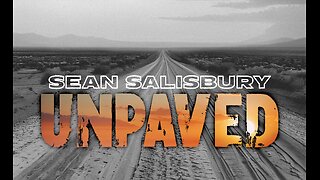Premium Only Content

The Sophisticated Cult - Aquarian Rising
NOTE:
Sorry for the late upload. I was having trouble coming up with a subject to make a video essay on until a day or two ago.
TRANSCRIPT:
Today’s topic is a bit touchy, so I’d like to take a moment before we begin to make it known that I have known many religious people throughout my life. We disagree on many things and I will maintain until my dying breath that I believe there are particular subjects about which religious people will lie without hesitation or moral qualm. However, almost every last one of them was a relatively decent person. I have no quarrel with religious people, but I have learned proper resentment throughout my life for institutions and everything they represent. And that includes religious institutions, which is the topic of today’s video. So let’s hop to it.
In the grand theater of human society, religious institutions have long played the role of the benevolent guide, shepherding flocks with promises of salvation, moral clarity, and community. However, beneath this veneer of sanctity lies a sophisticated machinery of manipulation, one that employs moral grandstanding, circular reasoning, iconography, and the veiled threat of ostracism to maintain its grip on the faithful.
Religious institutions often engage in moral grandstanding, positioning themselves as the ultimate arbiters of morality. This grandstanding serves a dual purpose: it elevates the institution's status while simultaneously making members feel morally superior by association. This tactic is subtle; by constantly discussing moral issues in black-and-white terms, they create an environment where questioning these morals equates to questioning one's own goodness. The irony, of course, is that this moral certainty often lacks the complexity of human ethics, reducing nuanced issues to divine decree.
Teaching by rote, especially circular reasoning, ensures that any challenge to doctrine loops back to the same unprovable axioms: "The scripture is true because it is the word of God, and we know it's the word of God because the scripture says so." This method insulates religious teachings from critique. Members are taught not to seek external validation or logic, for the circle is complete within itself, a perfect, unbreakable loop that requires faith over reason.
Iconography in religion isn't merely art; it's a tool of silent indoctrination. These images, from the serene faces of saints to the dramatic scenes of divine intervention, evoke emotional responses, making the abstract tangible and the divine immanent. This visual storytelling bypasses intellectual scrutiny, embedding beliefs at an emotional level where they're less likely to be questioned critically.
Perhaps one of the most potent tools in the religious arsenal is the threat, explicit or implicit, of excommunication or ostracism. When members question too much or challenge the dogma, they're not just facing a theological rebuttal but the potential loss of their community, identity, and sometimes even family. This fear keeps many in line, for the price of intellectual freedom is often too steep, framed not just as a loss of faith but as a fall from grace.
The use of positive, inclusive language—terms like "brother," "sister," "family"—creates an illusion of unconditional support and love. This familial rhetoric makes the institution's control mechanisms less detectable. After all, who suspects manipulation from 'family'? Yet, this language serves to enforce conformity; stepping out of line means betraying this 'family', making dissent emotionally taxing.
If we strip away the centuries of reverence, what remains of religion might resemble a highly sophisticated cult. Cults isolate, control information, create a dependency, and use emotional manipulation—all of which are present in mainstream religious practices but executed with such finesse that they're seen as forces for good. Religion, in this light, has evolved beyond the basic cult tactics, embedding itself so deeply into the fabric of society that its methods of control are celebrated rather than scrutinized.
So, let’s wrap this up. While religion offers comfort, community, and a moral framework for many, it does so through mechanisms that, if observed in any other context, might be deemed manipulative or coercive. The brilliance of religious manipulation lies in its invisibility, wrapped in the sacred, cloaked in community, and justified by centuries of tradition. Herein lies the paradox of religion: an institution capable of immense good, yet built upon the subtle art of control over the very essence of human thought and emotion.
So what are your thoughts about religious institutions? Does the feeling of community outweigh the millennia of covert suppressive manipulations? Should we ignore the political and sociological ramifications of allowing dogmatism and the façade of moral supremacy to shape public policy? What would a world, not without spirituality, but without religious authoritarianism look like? If you looked at the bible and other religious texts objectively, without guidance by religious leadership, would you find your faith bolstered or would you begin to see how the rest of the world views your doctrines, and what does that say about the value of your inclusion in your cult?
I’d like to hear your thoughts and your courteous arguments in the comments section below. As always, liking this video and subscribing to my channel means more people can join in the discussion. So until next time, have a good one.
-
 18:14
18:14
Real Estate
14 hours ago $0.38 earnedRising Prices PUSHING AMERICANS OVER THE EDGE
6.39K1 -
 1:43:35
1:43:35
Russell Brand
2 hours agoTrump Demands Big Pharma PROVE Covid Vaccine Is Safe – Did Pfizer LIE?! - SF626
131K25 -
 LIVE
LIVE
Due Dissidence
4 hours agoIsrael THREATENS Greta, InfoWars Host QUITS, FL Losing $200M on EMPTYING Alligator Alcatraz
985 watching -
 6:09:56
6:09:56
Law&Crime
7 hours ago $0.84 earnedLIVE: Adelson Matriarch Murder Trial — FL v. Donna Adelson — Day 6
12.8K -
 1:08:04
1:08:04
Sean Unpaved
3 hours agoGridiron Shocks: Arch's Rough Start, Belichick's Tar Heel Tumble, & NFL Week 1 Buzz
29.5K -

Professor Nez
2 hours ago🚨🇺🇸President Trump makes MAJOR Announcement from Oval Office TODAY!
9.2K5 -
 1:05:22
1:05:22
Timcast
4 hours agoLiberals Claim TRUMP DIED Or Is Dying And Will RESIGN Today At 2pm
139K116 -
 1:47:55
1:47:55
The Dilley Show
4 hours ago $16.41 earnedChicago in the Crosshairs, Grifters Crash Out and More! w/Author Brenden Dilley 09/02/2025
67.6K8 -
 LIVE
LIVE
StoneMountain64
2 hours agoBattlefield Portal has already been better than I realized
43 watching -
 LIVE
LIVE
Viss
4 hours ago🔴LIVE - How To Win in PUBG - PUBG 101
98 watching